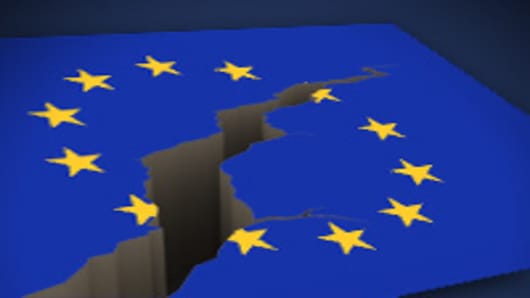Jean Claude Trichet says the European Central Bank wants to remain flexible. Let us hope his flock of hawks and doves means this, because the next few months are going to be a bumpy ride.
What is becoming increasingly clear is that the global manufacturing rebound is slowing down. This deceleration is showing up in the numbers from Europe, the United States and even Asia. For the markets this realization has already generated a massive move in commodity prices. For central bankers in Frankfurt the volatility will create multiple headaches.
The first problem for the ECB is that Germany is a high beta play on global manufacturing. Its recent growth has been truly fantastic but as we learnt in 2008 and 2009, when the world slows Germany slows even faster. I am not suggesting that its economy is going to fall off a cliff but the brakes are being applied and the data will increasingly reflect this.
Following this there is a Trans Atlantic issue to deal with. While the economic deceleration probably won’t prompt Federal Reserve Chairman Ben Bernanke to launch the third round of quantitative easing, it will further delay any tightening of American monetary policy.
If the Fed is on hold then the ECB can only go so far. If it races ahead then the yield spread will generate a euro rate (say $1.60 or higher) that will choke off growth even faster.
The third ‘problem’ is more of a reputational one. If the slowdown does become sticky then we are likely to see commodity prices settle out at a much lower level. Red-faced policy makers, who have wanted to sound hawkish to prevent a wage-price spiral, may have to change their tune rapidly as the inflation rate is checked.
Then there is the issue of Greece. It is now clear that Athens will have to restructure before 2013. The unknown unknowns in this scenario are already making the ECB sweat.
When a decision is taken, the Central Bank is going to have to be phenomenally nimble to navigate the euro zone through what is likely to be its most difficult period to date. While the politicians are panicking, the ECB must keep a firm hand on the tiller.
In aggregate, the central dilemma for the ECB is that it could soon face an inflation rate that undershoots rather than overshoots its target. It will also face a potentially explosive peripheral problem.
Will it be willing to cut in this scenario? I would suggest not. The central bank simply won’t want to give back what it has already taken. However, hiking in this environment will be difficult to justify. The market may be making in a mistake in pricing in multiple rates rises.


